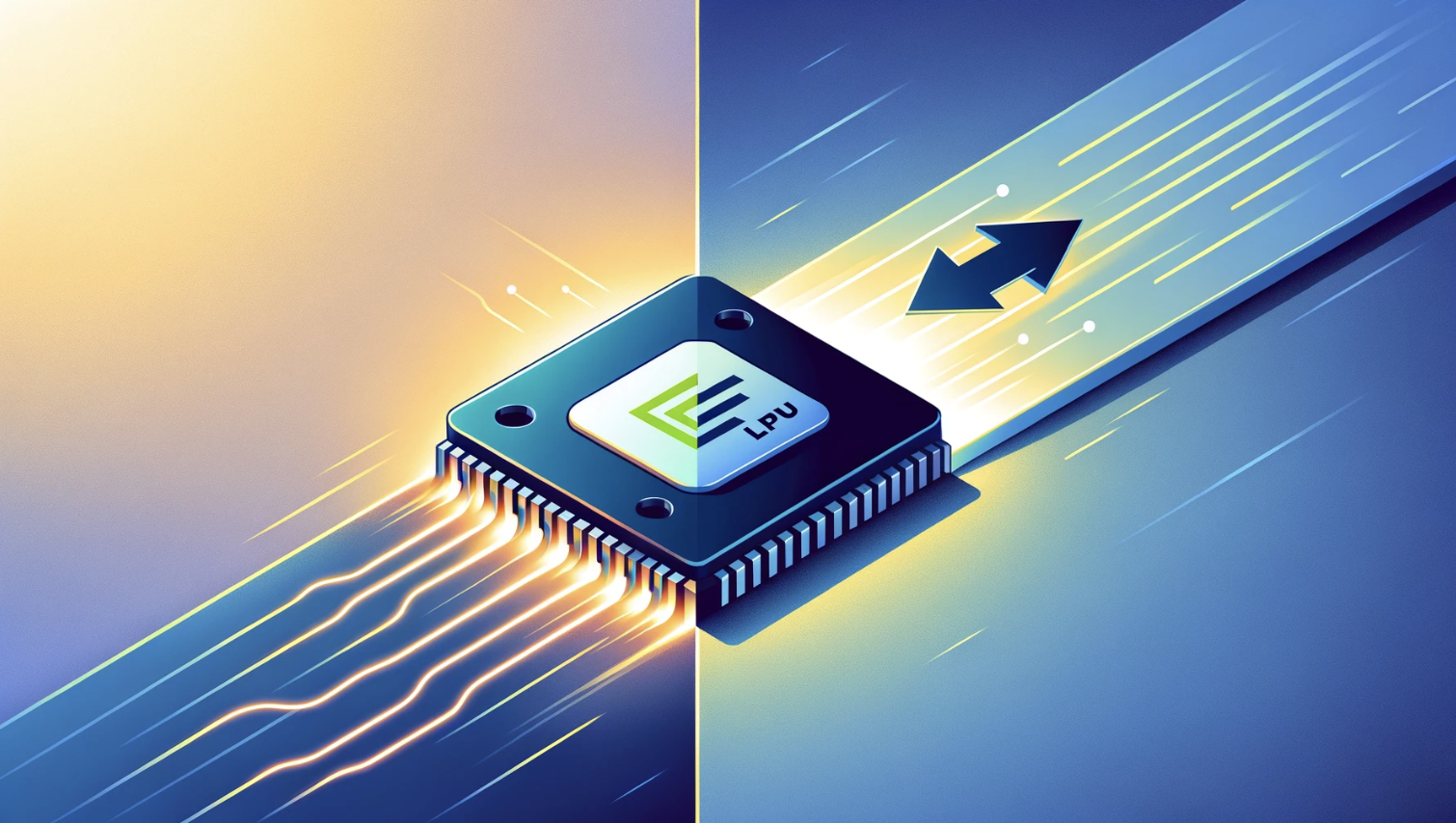In the landscape of technology and artificial intelligence, Nvidia’s recent earnings announcement has captured widespread attention. The company’s profits soared by an astonishing 265% compared to the previous year, underscoring its dominant position in the tech industry. However, the spotlight is gradually shifting towards Groq, a relatively new player from Silicon Valley that specializes in developing AI chips tailored for large language model (LLM) inference tasks. This shift in focus comes in the wake of Groq’s unexpected viral recognition, showcasing its innovative technology to a broader audience.
Groq’s Viral Moment and Its Implications
Over the past weekend, Groq experienced a viral moment that most startups can only dream of, thanks to Matt Shumer, CEO of HyperWrite. Shumer’s posts on X highlighted Groq’s “wild tech,” capable of delivering Mixtral outputs at nearly 500 tokens per second, with responses that are virtually instantaneous. This viral moment, although not as massive as social media activities surrounding other AI technologies, has undoubtedly caught the attention of industry giants like Nvidia.
Shumer’s demonstration of Groq’s “lightning-fast answers engine” further fueled interest in Groq’s technology. The demo showcased the engine providing detailed, cited answers within a fraction of a second, propelling Groq’s chat app into the limelight. This app allows users to engage with outputs generated by Llama and Mistral LLMs, marking a significant milestone for Groq.
A Closer Look at Groq’s Technology and Market Position
Despite Nvidia’s overwhelming market share, with over 80% dominance in the high-end chip sector, Groq’s CEO, Jonathan Ross, has positioned the company as a formidable contender. Ross, in an interview, emphasized the prohibitive costs of inference, highlighting Groq’s solution as a super-fast, cost-effective alternative for LLM applications. Ross’s ambitious claim that Groq’s infrastructure would be the go-to choice for startups by year-end underscores the company’s potential impact on the market.
Groq LPUs vs. Nvidia GPUs
Groq’s Language Processing Units (LPUs) represent a novel approach to processing units, designed explicitly for high-speed inference in applications with a sequential component, like AI language models. This design contrasts with Nvidia’s General Processing Units (GPUs), optimized for parallel processing tasks, thus offering a tailored solution for LLM outputs.
Key Differentiators and Strategic Advantages
- Privacy and Efficiency: Unlike other companies, Groq does not engage in model training, allowing it to maintain user privacy by not logging data.
- Potential for Collaboration: With Groq chips potentially running ChatGPT over 13 times faster, there’s speculation about a potential partnership with OpenAI, highlighting the unique benefits of LPUs for language processing projects.
The Future of AI Inference: Groq’s Role
As the AI industry continues to evolve, the question remains whether Groq’s LPUs will significantly change the game for AI inference. Ross’s vision for Groq, fueled by a $300 million fundraising round and his experience in developing Google’s tensor processing unit, suggests a promising future. Groq’s focus on creating a chip that prioritizes the “driving experience” of AI applications, coupled with its commitment to a user-first approach, sets it apart in a crowded market.
Impact and Challenges Ahead
- Rapid Growth and Industry Response: Following Shumer’s viral post, Groq received over 3,000 requests for API access, highlighting the growing interest in its technology.
- Strategic Positioning and Competitive Landscape: Ross’s comments on Nvidia’s market strategies and the broader AI chip industry reflect Groq’s ambition to redefine the sector.
Conclusion: Groq’s Path Forward
As Groq navigates its newfound popularity and the challenges of scaling up, its approach to issues like API billing and expanding its capacity will be crucial. With plans to increase its token processing capacity and explore partnerships with countries for hardware deployment, Groq is poised to make a significant impact on the AI chip market. The company’s journey from a viral moment to potentially leading the AI infrastructure for startups showcases the dynamic nature of the tech industry, where innovation and strategic vision can redefine market landscapes.







Leave a Reply